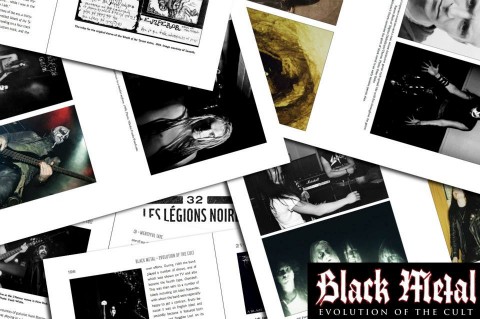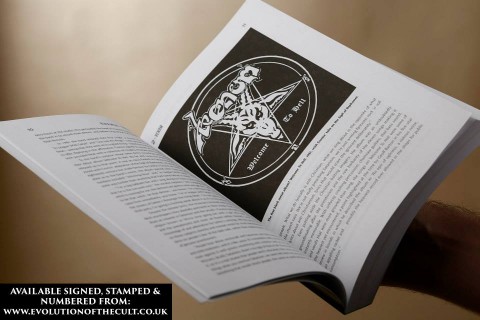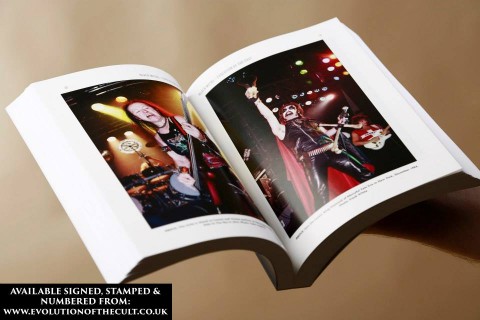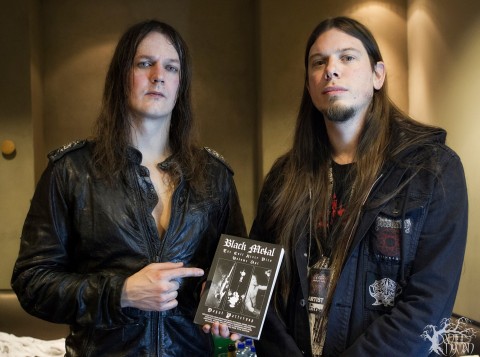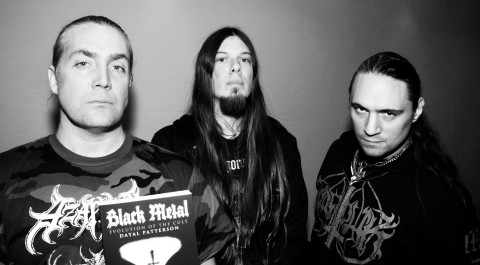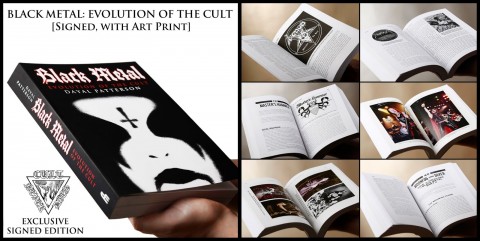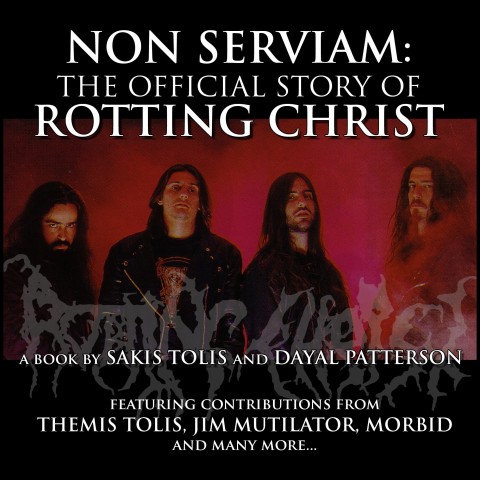"Darkthrone, Burzum, Mayhem, church burning, and Satanism are just a small part of black metal": Interview with writer Dayal Patterson
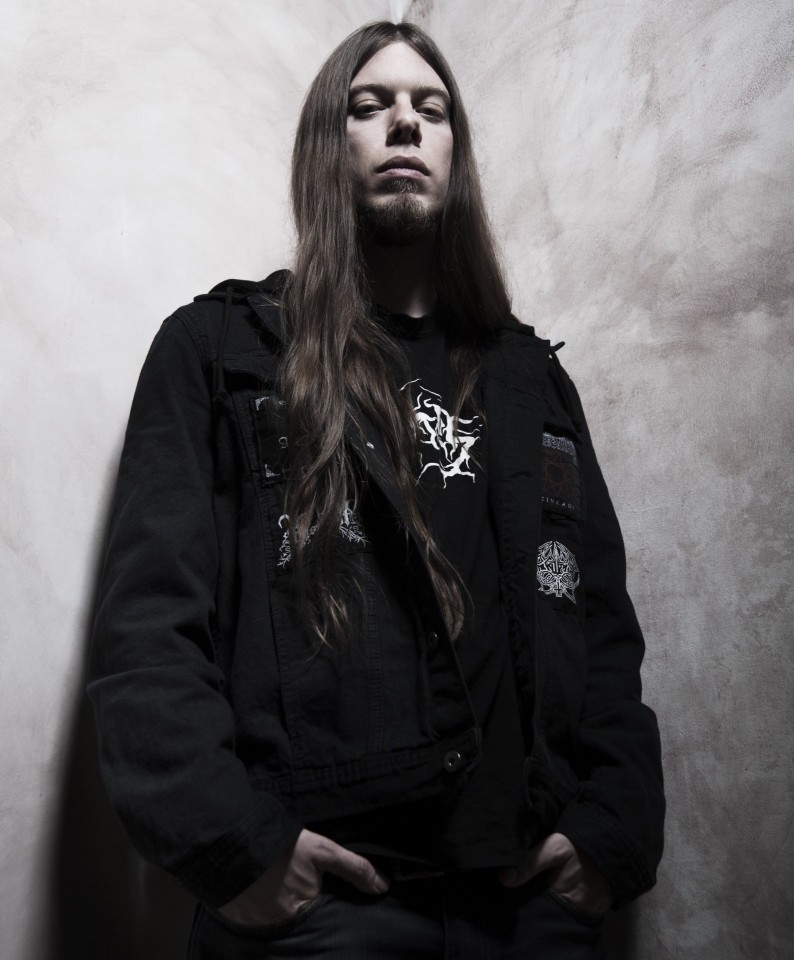
From 28 to 30 June, the 19th annual festival of extreme music and ethnic traditions Kilkim Žaibu was held near the Lithuanian town Varniai. Within the cognitive part of the event, which included lessons of ancient weapons possession, lectures, and master classes, the British writer, and journalist Dayal Patterson presented a number of his books, including the most famous "Black Metal: Evolution of the Cult".
Noizr Zine talked to the writer, asking about the work on his main book, which required 100 interviews with iconic representatives of the genre, what, in the author's understanding, is a "proper" history of black metal, and how much the musicians themselves agree with it. This, and much more you can know from our conversation with Dayal Patterson. Below is a transcript of an audio interview by Noizr Zine.
You’ve come a long way from the self-published zine and various music articles writer to the author of your own books. So when, and how did you come up with the idea to start writing 'seriously' on a set of books?
Dayal Patterson: I started writing a fanzine in 2003. I started writing for Terrorizer in 2004-2005, and Metal Hammer in 2006. Basically, it was summer 2009 when I came up with the idea to write this book about black metal ["Black Metal: Evolution of the Cult"]. I’d actually never thought about being an author, it wasn’t an ambition I had. I was actually studying photography back in the early 00s, so I was taking photos for magazines like Terrorizer and Metal Hammer. And by accident… Yeah, I did this fanzine and originally I had a plan that I would have other people writing the content, but in the end, the people I wanted to write the interviews didn’t do it, so I did it all this by myself. Basically, this is how magazines [became] my work. And this is how I discovered that I enjoy writing. So in 2006, I started writing, not full time, but I was getting some money from it, so I could write for Metal Hammer 2 or 3 days a week and do my graphic design work. So I was getting more and more into writing. The only reason I did that book was because no one else had. I was really waiting for somebody to do a proper book about black metal; every year, every month there were more people making documentaries, more people writing about it, but they were all from the outside, and I felt that somebody who was inside the scene should write a book and nobody else seemed to want to do it, so I did it by myself. That was 4 years before it was published. I enjoyed that time. Sometimes I was working full-time on it, sometimes part-time and for a year I wasn’t almost touching the book. And then at last [it was released] at the end of 2013… It’s now 5 years since then, we’ve released 9 books on Cult Never Dies, so things really sped up! Now I’ve become a full-time writer; that was an accident really.
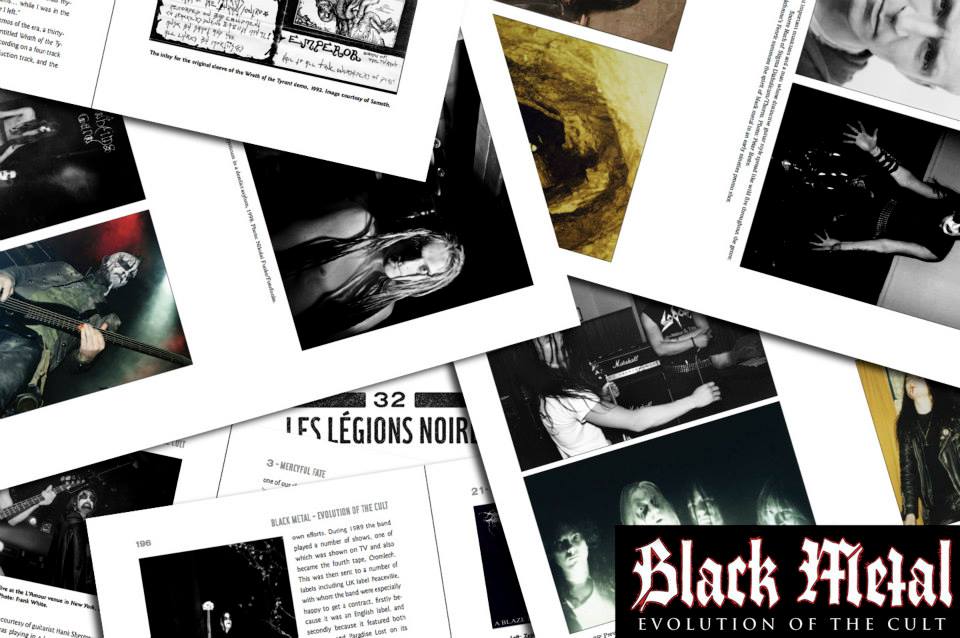
You’ve mentioned that you were waiting for a "proper" book about black metal. What did you mean by this word "proper"?
Dayal Patterson: [I meant] an honest book, a book that would tell the story accurately. I think black metal books before my book, and black metal articles by people not from the black metal scene, kind of distorted history for the younger generation. If the only thing is available to read is the accounts of histories by people who are not involved, then the whole story gets distorted. You start getting people thinking that black metal doesn’t have origins, that it started in the 90’s, and I really wanted to show that there were people before that. [The first part] of the book is about the 80’s: Venom, Master’s Hammer, Von, Bathory, Celtic Frost, Tormentor — these kinds of bands who were always ignored in accounts of the black metal genre. When people wrote about black metal history it would be like 2 pages on the 80s, you know, "Venom came out in 1980, then Celtic Frost. Now, let’s talk about real black metal: Darkthrone, Burzum, Mayhem, church burning, Satanism". And this is a very small part of it. I’m not the only person who writes about it honestly but, for sure, when I started that first book there were a lot of people who were not honest in their intentions, they were not really interested in black metal, they were interested to tell the story just because it seemed sensational. And, my books aren’t sensational, because if you just tell an honest account of black metal you’ll get enough interesting stuff anyway, because the [black metal] people are quite strange and interesting.
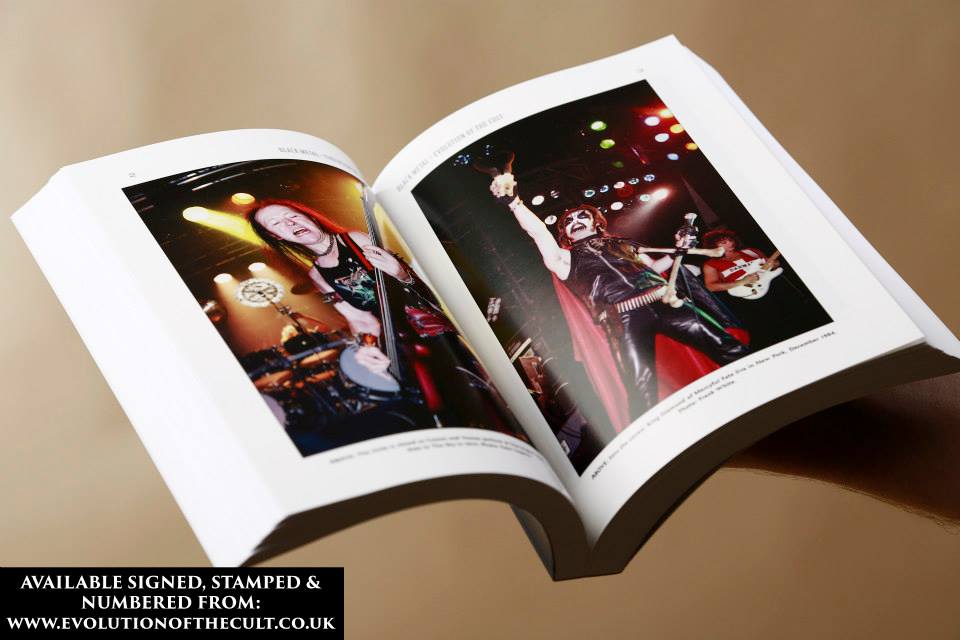
"Black Metal. Evolution of the Cult" has become one of your most famous books. Black metal is a huge world, so, I wonder, how did you choose topics, bands to write about?
Dayal Patterson: It was just basically chronological. Each band, each chapter is kinda following the next in terms of the time and so the book is saying, "This was influenced by this, then this came next". I made that really strict because I didn’t want to inject me into the book, I didn’t want to inject my theories or personal opinions; what I wanted was to lay it out objectively and create something you can’t deny, something that’s literally a historical account. The first chapter is Venom, 1980, then Mercyful Fate, then Hellhammer, it’s like 1983, 1984, then Master’s Hammer a few chapters down the line in ’89. So that’s why it’s called "Evolution of the Cult" because Darkthrone, Burzum, that’s 1991. How did we get to that point? All of them were influenced by Master’s Hammer and Bathory. But who was influencing Master’s Hammer and Bathory? And I think that's what was missing before. A lot of people writing about black metal come up with the idea first that black metal is about Satanism, or that black metal is about European paganism, then they tried to build the story around it. But if you just lay out the facts in the order they happened and you talk to each person [asking], "What’ve you been inspired by?", the truth becomes some kind of undeniable.
Did you meet any disagreements from the musicians about "Evolution of the Cult"?
Dayal Patterson: Well, it’s hard to disagree with it, that was the point. You can’t say that Bathory wasn’t inspired by Venom, because you’ve already shown that certain lyrics were directly inspired from Venom. You can’t say Enslaved didn’t know about Master’s Hammer because you have the guy from Enslaved saying, "We really like Master’s Hammer". There’s very little opinion from me in the book. You or a reader might disagree with something the bands say or a Satanic band might disagree when a non-Satanic band says, "You don’t need to be Satanic", but it’s just their opinion. There’s nothing in the history side of the book about which you can say 'that’s not a fact'. There’s no conjecture, it’s as accurate and truthful account, I think, as you can make.
How do you feel about "Lords of Chaos: The Bloody Rise of the Satanic Metal Underground" book?
["Lords of Chaos" was written by Michael Moynihan and Didrik Søderlind and released in 1998. The book received mixed reviews of critics. The musician Varg Vikernes criticized it, saying that its authors "have no insight into or even good knowledge about the subjects discussed". This year has taken place a premiere of a based on a book movie called "Lords of Chaos", directed by Jonas Åkerlund]
Dayal Patterson: I think that "Lords Of Chaos" is a very different book to "Evolution Of The Cult", which I guess is why Feral House were keen to release it. "Lords Of Chaos" is essentially a true crime book based on crimes relating to Satanism and metal with about one third being about black metal. My book is a history of black metal exclusively, so I think readers can enjoy one or both books without any issue.
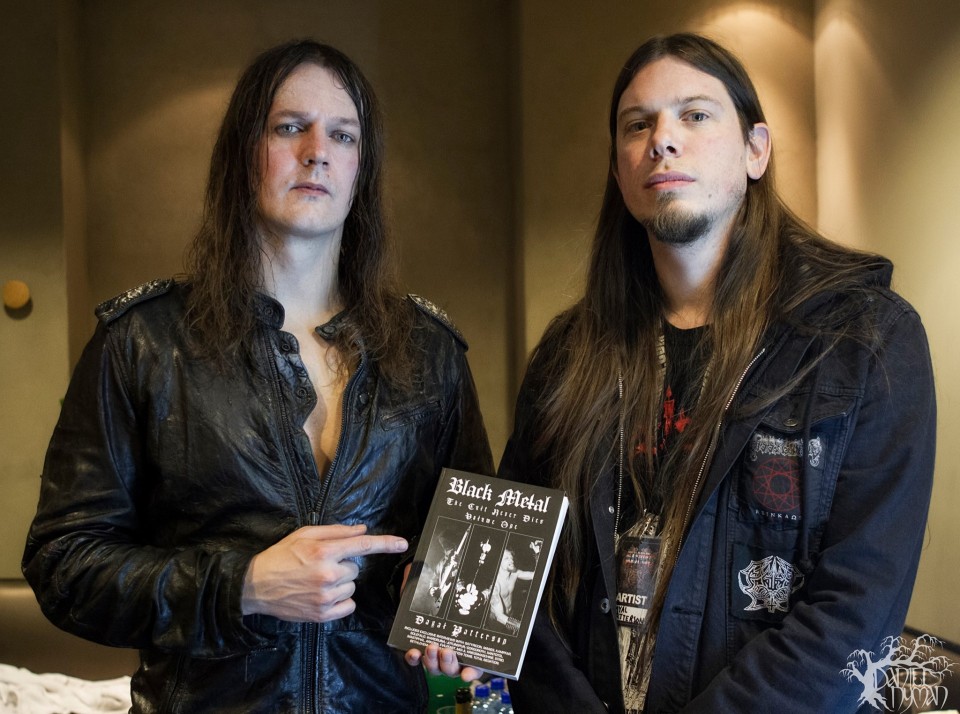
Dayal Patterson and Satyr of Satyricon, photo by danielnymanphotography.com
You've conducted 100 interviews for "Evolution of the Cult". Was it easy for you to get them at that time?
Dayal Patterson: No, a part of the reason the book took 4 years was because it’s such a slow process. Actually, there were a few things. Firstly, the social media had already started but, still, it wasn’t so effective, it was a bit harder to contact musicians. Nowadays, it’s a bit easier to find people and if you know their real name on Facebook, you might find them. In 2009, Facebook did exist but no one really had it. The second thing was I didn’t have a name as a writer. Now, it’s very easy for me because if I ask a band, "Can I do an interview with you?", a lot of them have already heard about my work or they know me personally, or we’ve worked together, or they might even be a fan of the book like Mgla. Some of the bands I asked (like Mgla from Poland), these guys have already read the books, so when I said, "Do you want to do an interview?", they knew the story, so that was very easy. But back then no one knew who I was, so I had to really say, "Look, I’m a fan, I’m going to present you in an honest way". So it took a while to persuade people. People were really scared that they would be shown in a bad light.
It’s a sort of trust because you can’t show them anything before you release your first book. I’d written for Metal Hammer already, so that helped a bit, because if I was talking as an 'unknown' it would have been a bit harder. Some of these guys I knew already, like Mayhem, whom I’ve known through my fanzine. And if you could reach somebody, you could get somebody to recommend you. There was one band who didn't reply to my messages but we had a mutual friend, who's in Mysticum, I think, and I’d say, "Could you tell this guy I’m on the level?", then the next day they would reply — that really helps. You just have to make sure that you have a good reputation! I don’t think that any band feels anything bad about the interviews they did with me, because there’s no hidden agenda. I’m not from a tabloid newspaper, trying to make some book; I think people appreciate the honesty.
When you started working on the book you were already a skilled journalist but I think this big project has brought you something new. Probably with these 100 interviews you have discovered some new side of black metal, haven’t you?
Dayal Patterson: Absolutely. I’ve been reading black metal interviews since 1995, so when somebody told me a story that hadn’t been told before, I knew that it hadn’t been told, so that’s why I could dig deeper and add new content in the book because I didn’t just ask the same questions. There is a lot of interviews with, let’s say, Mayhem or Darkthrone, I mean I’m sure the guys from Darkthrone have answered the same questions hundreds of times in their career. So these questions I avoided asking them. Again, I didn't [write anything] thinking that this band has influenced this band, I just said to every band, "So where did you get your influences?", "Let’s talk about your beliefs". I learned a lot, and I hope all the stuff that I learned I’ve sort of shared that with the reader. I think definitely that was a learning process for me.
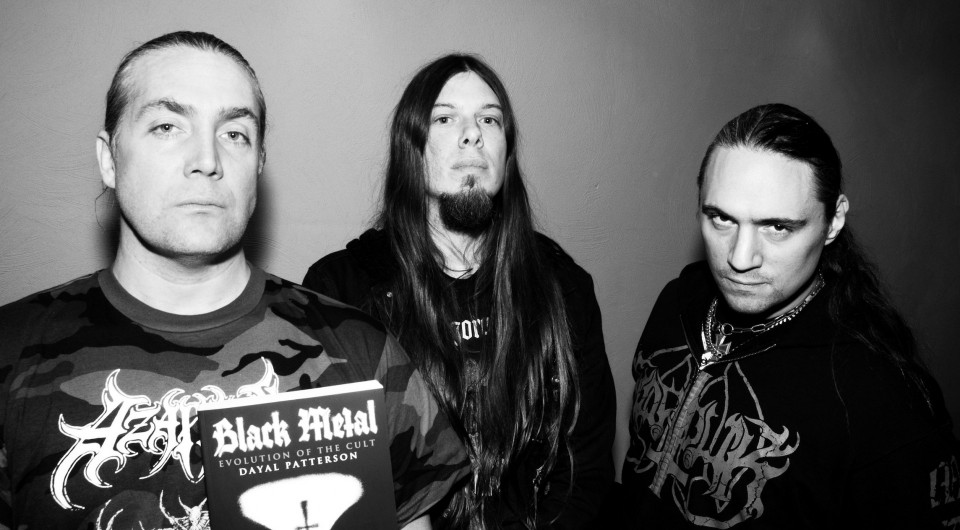
Dayal Patterson and Marduk, pic is taken at heathenharvest.org
Black metal is often called the last and the biggest step in metal’s development. Do you agree with this?
Dayal Patterson: Yeah, I do because black metal, as we know, came out over 25-27 years ago. What’s come since then? We have thrash, death, black metal. I know this stuff. There are different genres like djent, progressive… But this is something different, that’s such a different scene. The funny thing with black metal is that we started talking about black metal in the 80’s, then people really started to talk about it in the early 90’s. And now every year, there is a new band making music that you would never guess would come out but which is undeniably black metal. So it seems that the parameters of black metal are so much wider than doom, death metal, grindcore. Black metal's borders are almost infinite. Bands use folk music, techno, ambient, it can be almost mixed with anything. That’s good for someone like me to write a book about black metal because it’s always something new to talk about.
You’ve almost started to answer my next question which is about the ways the genre goes today, so you probably can highlight some strengths and weaknesses.
Dayal Patterson: I think, black metal as a genre has two sides. One side is a traditional and conservative side and the other side is experimental and revolutionarily side. And what is unusual about black metal in comparison with a lot of other genres is that both sides are very strong. So every year for the last 30 years there’s been a band who did something new in black metal but at the same time, there’s a new band of young musicians who worship something that came before. So right now you have a band like Mgla that I’ve already mentioned — that’s one of the most popular bands currently, but their sound is really based in the 90’s. So they are a kinda very traditional band. Then we have something like Batushka, it’s kinda traditional but it has something new as well. These are two popular Polish bands, which show different faces of black metal. So the strength is that every year there is more stuff to listen to, there are more bands. I don’t really see a weakness. Yeah, of course, the more bands there are, the more crap bands there are, but you don’t have to listen to them all. Some people say that there are too many bands aren’t very good. But if they don't think they're very good, they don't have to listen to them. It’s a bit like Darwinism — the good bands survive. The next book to be released is a Rotting Christ biography and this covers a 30-year career. You know that they're the sort of band that proves you can keep releasing strong albums regularly, even though you might even upset some fans by changing your style sometimes but eventually, you will be respected. Rotting Christ is totally respected by the black metal scene. Even if they made some sort of gothic metal albums which some black metal people didn’t like, time proved them to be an important band. So if there are bad bands, don’t listen to bad bands, if there are albums you don’t like, don’t listen to them.
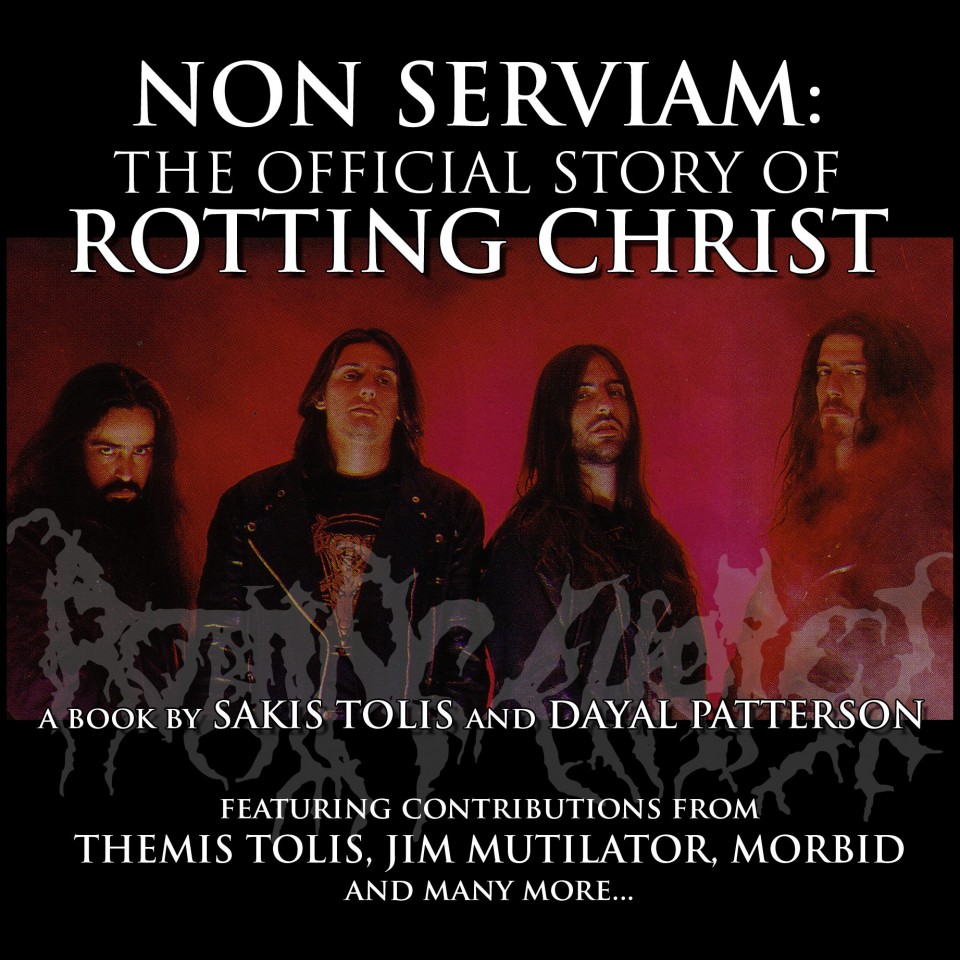
And I suppose nowadays things are a little bit different now because of the Internet — everything is so open which is mostly good because it helps to promote festivals, we sell a lot of our books online, so it's mostly good. If anything I miss a little bit is that in the 90’s, black metal was a bit more exciting because you felt like you were a part of... That it was so mysterious. It wasn’t just everyday music. You’d never even heard of it. People knew about death metal. You can turn on MTV and there might be a death metal band, but when you first heard black metal you were like, "Shit, this is a band I’ve never even heard of, and I’m a metal fan!". You couldn’t buy their stuff in the shops, there was no Amazon, there was no YouTube, no Bandcamp. You had to have someone who could copy it and then you got a tape. In some way that wasn’t so good because you might have to wait for 2 years! There was an album I wanted to hear but it took me 2 years to find a copy. And it was quite annoying. Now the most obscure demo just can be found via Google, which is great, but for the people who weren’t there in the 90’s– and that’s another reason I write these books – those people can’t imagine how exciting black metal was as a social-artistic movement, as a cult. I always use that word because it did feel like a cult. If you met someone in a black metal T-shirt on you spoke to him, now if I see someone on the street in London in a black metal T-shirt, I [wouldn’t care]. Do you know what I mean? Black metal was something like a secret organization, there was also some sort of mystery about the bands because there were no video interviews. So I miss that a little bit. But in the end, I think it’s better now.
It’s interesting what do you think about all these true behavior and true sound things which have been argued between the fans.
Dayal Patterson: That’s the two sides I’ve talked about. There’s a conservatism and an experimental element. It’s good that there are two sides. People like to argue these days, especially on the Internet, but I’m happy that there’s a traditional side, and I’m happy that there are people that don’t care about being true. Both sides are good.
If you meet someone who doesn’t have a clue about black metal what bands would you recommend him to listen to?
Dayal Patterson: I’m struggling to do that, it’s like choosing your favorite children or something. I’ll say Bathory, Mayhem, Darkthrone, Burzum, Watain, Deathspell Omega, Mysticum... There are so many of them, that’s really [hard to pick]. That would be a much easier question if you said, "Tell me 3 or 10 death metal bands". I think it says a lot about how broad black metal is. Even if I gave you 10 bands to listen to it would still be not representative. For someone new in black metal, you probably have to hear 50 bands to understand what it is, and that’s what I like, the possibilities are endless.
Order "Black Metal: Evolution of the Cult" and other Dayal Patterson's books via Cult Never Dies. Find more about Rotting Christ's "Under Our Black Cult" book here.
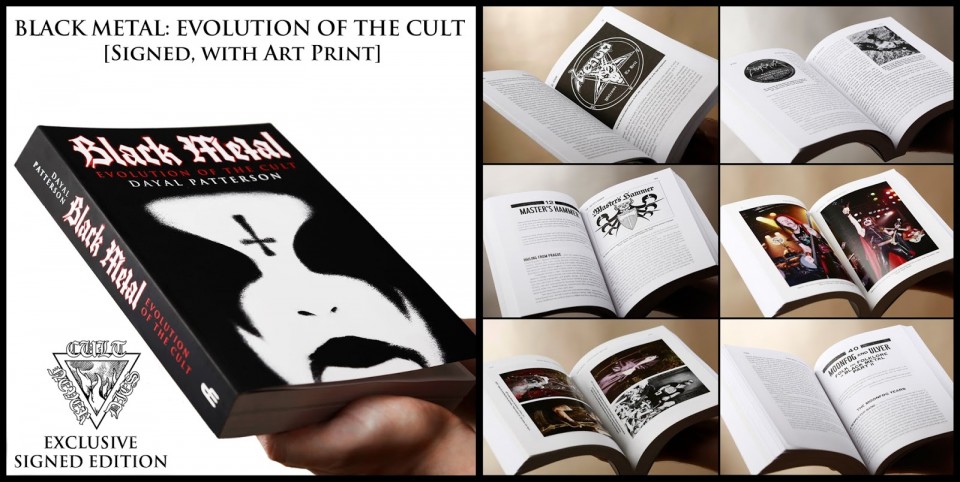
Interviewed by Yurii Somov
Transcripted by Anastezia
